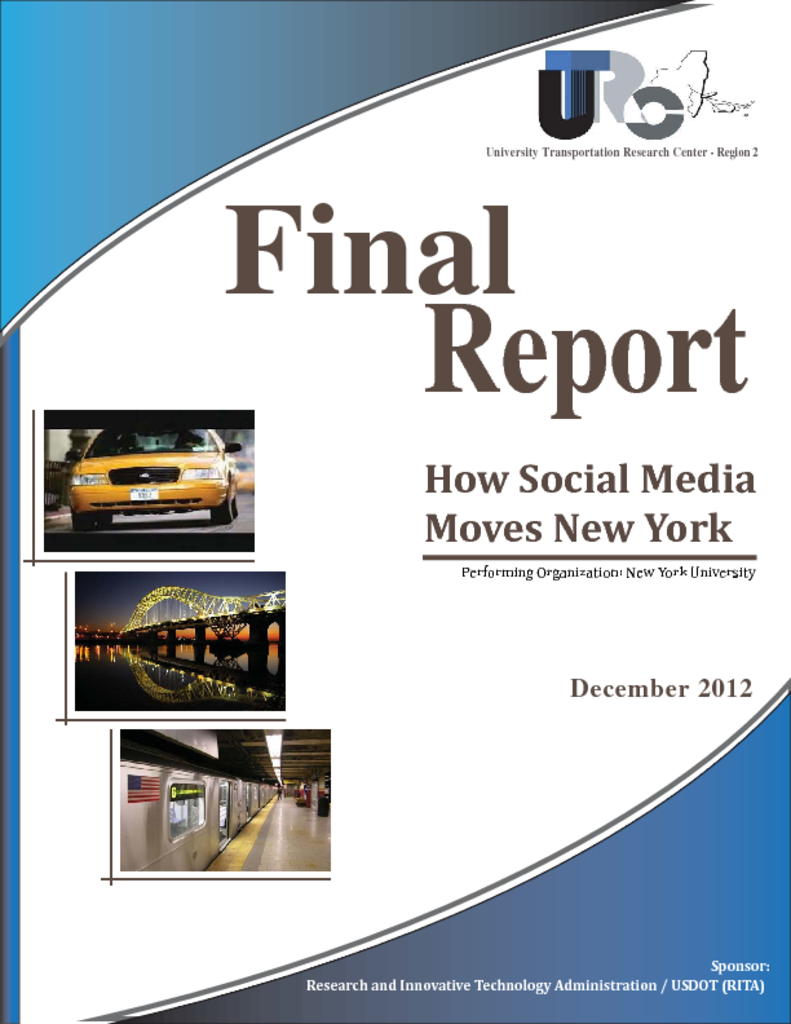Social media networks are valuable tools for the public outreach needs of transportation providers: they are free, instantaneous, reach large numbers of people simultaneously, and allow for sideline discussions. When transportation providers are trying to notify large numbers of passengers about delays, drivers about construction work, or bus riders about re-routes, they can “blast” messages through social media channels to reach their intended audience immediately (the audience accesses these networks far more frequently than the websites of their local transportation agencies1). The goals of social media in transportation are to inform (alert riders of a situation), motivate (to opt for an alternate route), and engage (amplify the message to their friends and neighbors). Ideally, these actions would occur within minutes of an incident.
This report analyzes the use of social media tools by the New York region’s major transportation providers. It is focused on the effectiveness of their Twitter feeds, which were chosen for their immediacy and simplicity in messaging, and provided a common denominator for comparison between the various transportation providers considered, both public and private. Based on this analysis, recommendations are outlined for improving social media outreach. A subsequent report will propose policies and recommendations for enhanced information and engagement with users.




